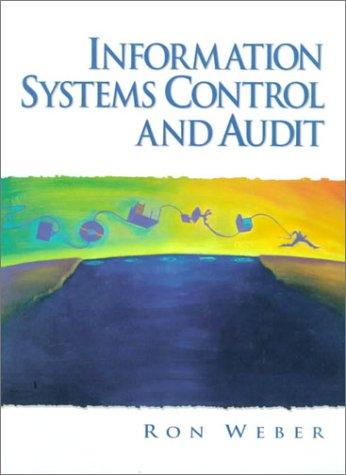You are the manager of internal audit in a large, centralized manufacturing company that is currently using
Question:
You are the manager of internal audit in a large, centralized manufacturing company that is currently using a relational database management system to support the company database. The company has used this system successfully for many years as a foundation for all its major application systems. The system has a large worldwide user base.
One day you are approached by the vice president of information systems to provide advice on a proposal that he has received from his systems analysis manager, his programming manager, and his database administrator. In the proposal, they argue that the company should cease use of the relational database management system and acquire an object database management system. They give three major reasons for the proposed change. First, they argue that the system will allow them to develop better conceptual models of application domains and that these models will provide the company with a competitive advantage in the marketplace. Second, they argue that the system will provide support for the company's engineers in the product design work they undertake. They point out that this work cannot be supported by the company's relational database management system. Third, compared with the relational database management system, they argue that the object database management system provides faster recovery of the database in the event of failure. They believe this advantage to be important in light of the large number of online users of the database.
The vice president of information systems is concerned about the significance of such a move for the company. In this light, he asks you to examine the specifications of the object database management system, especially from a controls viewpoint, and to comment on the proposal he has received.
When you examine the specifications of the object database management system, you note that it appears to provide high-quality controls in terms of access controls, concurrency controls, audit trail controls, and backup and recovery controls. It provides only weak support for a distributed database environment, but you are not concerned in light of the centralized operations of your company. You note, however, that the system appears to enforce few integrity constraints. It assigns a unique identifier to each object, but it is unclear from the specifications what other integrity constraints it enforces.
Required: What advice will you now provide to the vice president of information systems in light of your findings? Be sure to indicate the likely impact on application systems from a controls viewpoint if the system enforces few integrity constraints. Be sure, also, to indicate any likely impact on the way you would conduct your audits if the system were to be implemented. In both cases, try to be as specific as possible in the advice you provide.
Step by Step Answer:






